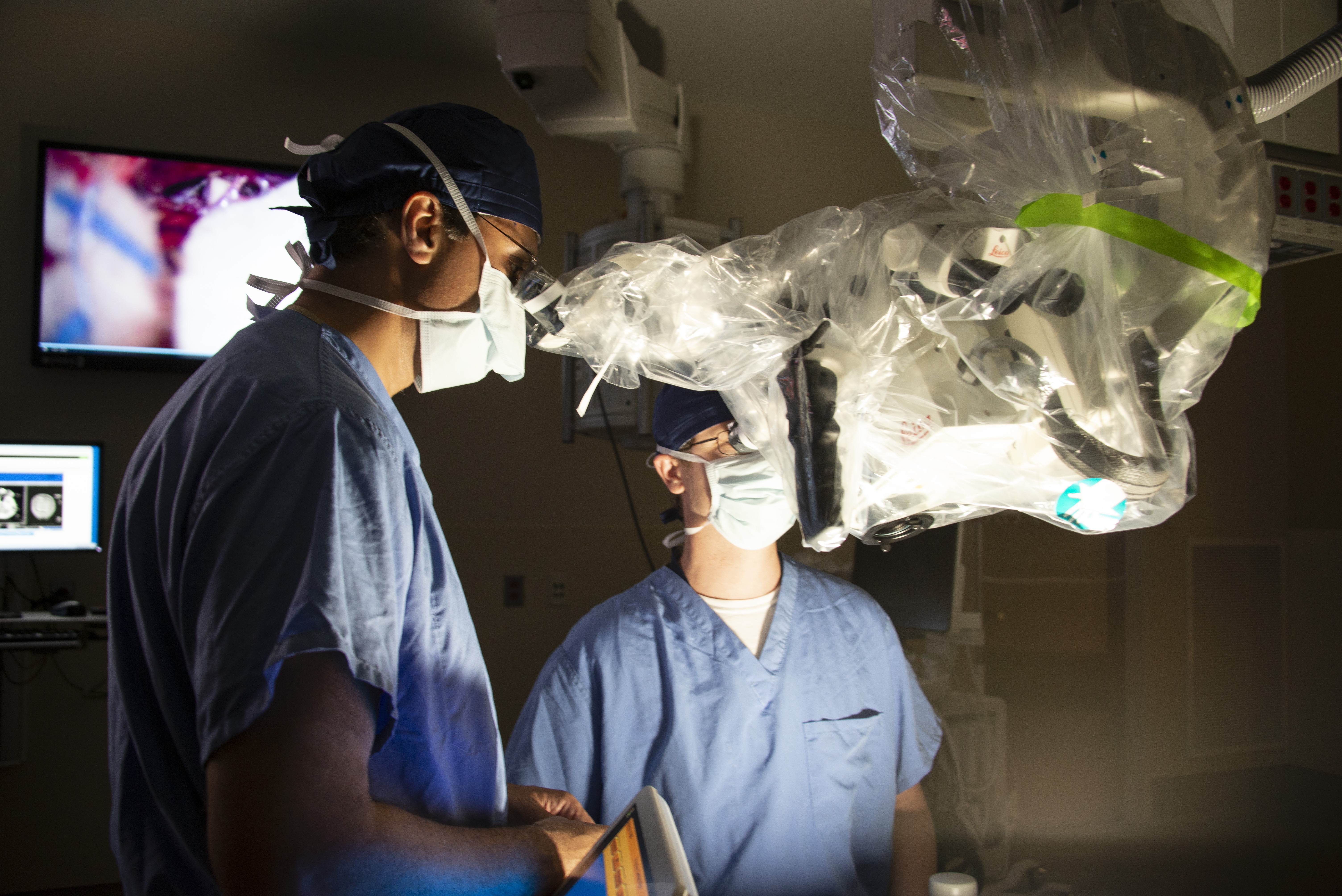UConn Health is home to New England’s first Cranial Nerve and Brainstem Disorder Program, bringing together a multidisciplinary team of experts to streamline care for patients with such conditions.
Led by Dr. Ketan Bulsara, chief of neurosurgery, Dr. Daniel Roberts, ear, nose, and throat surgeon who specializes in neurological disorders of the ear, the team collaborates with other specialists and will encompass clinical care, research, and teaching.
“One of the core principles of patient care at UConn Health is a multidisciplinary approach to providing personalized care to optimize patient outcomes,” Bulsara says. “The Cranial Nerve and Brainstem Disorder Program extends that core principle by bringing together world-renowned experts in their fields. We are fortunate at UConn Health to have such an accomplished team across so many different specialties that is willing to work together to provide the best care for our patients.”
Collaborators include specialists in neurology, neurosurgery, otolaryngology, ophthalmology, neuroradiology, neuropsychology, neuropathology, radiation/oncology, hematology/oncology, and physical therapy.
The Program guarantees rapid evaluation of patients, regardless of whether they were diagnosed recently or long ago. Patients or practitioners can submit a request through the center referral portal, which is staffed by Bulsara and Roberts. For neurosurgical or ear, nose, and throat issues, the patient will be offered an initial evaluation appointment that is within a week of their request.
If the cranial nerve or brainstem issue is not related to the ear, nose, and throat or a neurosurgical issue, the physicians will connect the patient with the appropriate service.
“To have patients be able to access care in a very timely and expedited fashion is key,” Roberts says. “A patient can call us and we’ll say, ‘We’ll see you within a week’ to get the ball rolling and help direct them through this complicated process.”
Areas of care include acoustic neuromas; blood vessel problems including aneurysms, arteriovenous malformation, and cavernomas; brain tumors; hemifacial spasm; meningioma; neurofibromatosis; skull base tumors; trigeminal neuralgia; and taste and smell disorders.
“Brainstem and cranial nerve disorders are quite rare, and often require experts from different areas for complicated issues,” Roberts says. “We’re excited about the future of this.”
Services are available at UConn Health’s Outpatient Pavilion in Farmington and at its offices in Southington and West Hartford. Learn more about the Cranial Nerve and Brainstem Disorder program, or to make an appointment, call Neurosurgery at 860-679-8080 or Ear, Nose, and Throat at 860-679-2804.
Patients and practitioners can also email Dr. Bulsara at bulsara@uchc.edu or Dr. Roberts at droberts@uchc.edu.



